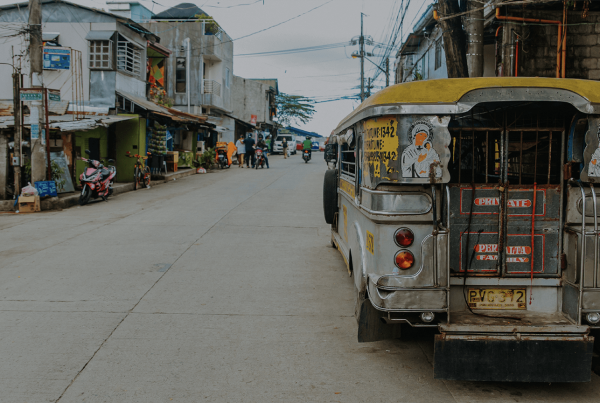For the last decade, The Exodus Road has supported law enforcement around the world in fighting child trafficking. We train local investigators, identify victims, build effective cases, and support law enforcement in operations.
In that time, we’ve seen a disturbing trend firsthand: increasingly, the trafficking of children is happening online.
Many of the cases that our teams work on involve traffickers using social media to recruit minors online, advertise minors for sale online, and sell and distribute sexual abuse content of minors online. In fact in 2022, 76% of the cases our teams worked on that resulted in individuals freed from human trafficking involved social media. Child traffickers heavily depend on online platforms to sustain their uninterrupted cycle of supply and demand, especially since the COVID-19 pandemic.
In addition to the risks of online exploitation of children, there is also a growing youth mental health crisis, which experts link to online activity and exposure. In August, three high-profile medical associations warned that emergency rooms are overwhelmed by youth seeking emergency psychiatric care. The U.S. Surgeon General has outlined many of the mental health risks that social media poses to young people, especially as they spend more and more time online.
The escalating reliance on the internet has not only shifted the dynamics of trafficking but also necessitated a reevaluation of how we approach and combat this grave issue.

U.S. Sen. Richard Blumenthal, D-CT., at a hearing on child internet safety
The Kids Online Safety Act of 2022 (KOSA), introduced by Senator Richard Blumenthal (D-CT) and Senator Marsha Blackburn (R-TN), is aimed at protecting children online. It would “require social media platforms to put the interests of children first by requiring platforms to make safety the default and to give kids and parents tools to help prevent the destructive impact of social media.” It will also allow policymakers to assess whether social media platforms are taking meaningful steps to address the risks their platforms pose to children.
According to Senator Blumenthal’s website, the bill:
- Requires social media platforms to provide minors with options to protect their information, disable addictive product features, and opt-out of algorithmic recommendations.
- Gives parents new controls to help support their children and spot harmful behaviors, including by providing children and parents with a dedicated channel to report harms to kids to the platform.
- Creates a duty for social media platforms to prevent and mitigate harms to minors, such as content promoting of self-harm, suicide, eating disorders, substance abuse, and sexual exploitation.
- Requires social media platforms to perform an annual independent audit assessing risks to minors, their compliance with this Act, and whether the platform is taking meaningful steps to prevent those harms.
In short, the bill requires social media platforms, such as X and Meta — both of which are widely known to be primary tools of traffickers — to take steps to ensure the safety of children and work to prevent the harm that social media platforms have enabled. The bill has been supported by more than 200 organizations, including the National Center On Sexual Exploitation, the American Academy of Pediatrics, and the American Association of Child and Adolescent Psychiatry.

In recent weeks, KOSA has found itself at the epicenter of heated debate and no small measure of negative media attention. As it inches closer to the legislative floor, various forces — not least among them Big Tech — have embarked on a relentless campaign to misconstrue the bill’s intentions and outcomes. The narrative woven is one of censorship and overreach, with claims suggesting that KOSA will encroach upon the rights of parents and children alike.
However, we believe that the true essence of KOSA is not in limitation but in empowerment. We find that KOSA aligns with the mission of The Exodus Road and drives a clear path to disrupting modern-day slavery and human trafficking. As the leader of an organization that deals with the online exploitation of children every day, I’d like to offer an alternative perspective to some of the critiques of the bill.
The bill centers on product design, not content moderation.
Recent modifications to KOSA have ensured that its duty of care is solely centered around product design. The goal is to prevent platforms from using manipulative designs that continually push harmful content to children.
When the bill was introduced last year, LGBTQ+ advocates expressed concern that the bill could be used to restrict youth’s access to resources for community and support. As a result of their advocacy, the bill was revised to ensure content for the queer community would not be interpreted as harmful to children and ensure that young people are not restricted from deliberately and independently searching for specific content on the internet.
It’s imperative to repeat: the aim of the bill is not content moderation — or censorship of certain content — but product design. Individual rights to internet content remain intact under KOSA. It’s not a censorship bill but a safety measure.
KOSA empowers parents rather than intruding on parental rights.
Critics allege that KOSA will usurp the rights of parents to govern how their children interact with social media. However, the bill seeks to equip parents with effective tools and information so they can make informed decisions in the best interests of their children. KOSA is a partnership with parents, not an intrusion.
The opposition to KOSA from Big Tech isn’t surprising. Yet, in our haste to protect financial interests and maintain the status quo, we must not lose sight of what’s genuinely at stake: the well-being and safety of our children.
We have heard heartbreaking testimonials from parents who have lost children to the dangers of online platforms. Their stories serve as a harrowing reminder that inaction carries a devastating price. It is our societal and moral duty to protect the youngest members of our community from harmful elements online.
By partnering with law enforcement to fight human trafficking crime, equipping communities to protect the vulnerable, and empowering survivors as they walk into freedom, The Exodus Road leads legislators by example. If we are not taking action to prevent and end child exploitation, we are enabling it.
KOSA isn’t about curbing rights or freedoms; it’s about building a safer digital world where children can learn, connect, and grow without the looming threats that currently pervade these spaces. The Exodus Road is calling on lawmakers to protect children during critical years of development and beyond. Let’s ensure their future by supporting KOSA — our duty to the next generation demands nothing less.
If you are interested in learning more about ending exploitation in our digital world, check out Influenced, The Exodus Road’s in-person training on digital safety for parents and teens. It’s full of practical education and action steps that empower families to participate in our online world while avoiding exploitation: theexodusroad.com/influenced/






